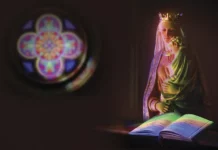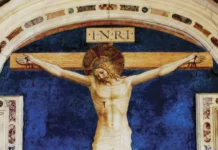The Saviour was born poor and was known as “the carpenter’s son”. How He lowered himself to raise us up! He seems to be the only king who did not want a throne for himself… But is that really so?
Since ancient times, in the most varied civilizations and cultures, the figure of a sovereign has always signified the pinnacle of society. The head of a people was one who stood out for his martial abilities, dominant character, natural gifts or noble lineage. Among the Hebrews, the first two monarchs, Saul and David, were elected directly by God.
Notwithstanding different customs, a king never lacks a throne. Who devised this object? Who was the first ruler to sit on one? Its origins disappear on the horizon of long-distant millennia… Whatever the case, this word denotes not only a type of chair, but it also implies power, command, and royalty.
In Scripture we find many passages referring to it, such as the following: “all the first-born in the land of Egypt shall die, from the first-born of Pharaoh who sits upon his throne” (Ex 11:5). And in the promise made by the Almighty to the prophet-king concerning his son Solomon, in whose person the Messiah was foretold, it is stated:
“He shall build a house for my name, and I will establish the throne of his kingdom for ever. […] And your house and your kingdom shall be made sure for ever before Me; your throne shall be established for ever” (2 Sm 7:13, 16).
In the New Testament, the term takes on supernatural splendour when the Archangel Gabriel uses it to announce to Mary that the Lord would give the throne of David to the One whom She would conceive (cf. Lk 1:32). Jesus himself promises a throne to each of the Apostles when He himself is seated on His triumphal throne (cf. Mt 19:28). Finally, St. Paul encourages us to “with confidence draw near to the throne of grace, that we may receive mercy and find grace to help in time of need” (Heb 4:16).
The doctrine of the Church teaches that the Second Person of the Blessed Trinity, being eternal God and identical with the Father and the Holy Spirit, left behind, as it were, His glory in Heaven to become mortal and bring about the Redemption of mankind. He not only wished to assume our nature, but also to undergo the sufferings to which we are subjected. He chose for himself what was most humiliating in order to give to us, with divine largesse, the wonders of grace.
And so He, the King of kings, was born poor and was known as “the carpenter’s son”. How the Saviour lowered himself to raise us up! He seems to be the only sovereign who did not want to have a throne of His own… But is that really so?
Jesus did, in fact, renounce everything that would reveal His natural kingship – for He was the son of David! – But He did not disregard the symbolic role of the throne. He chose for himself the most extraordinary one possible: it was not made of gold or ivory, nor was it studded with precious stones; it had no soft and pleasant cushions, nor was it adorned with heraldic symbols. His royal seat was Mary Most Holy! That is why an innocent Christmas carol says: “A virginal throne, more beautiful and more sublime than Heaven, has welcomed Him.”
Christ is the King who possesses the most exalted throne that has ever been or will be in history. And this same honour He reserves for those who faithfully persevere in the midst of trials, struggles and persecutions: “I will grant him to sit with Me on my throne, as I myself conquered and sat down with my Father on His throne” (Rv 3:21).
Let us have recourse to Our Lady with entire filial confidence, never discouraged by our miseries. She cherishes us with unfathomable love and affection, and asks only one thing of us: that we abandon ourselves, full of faith, to her care. When we draw our last breath, God Incarnate will fulfil His promise and share His throne of glory with us: the amiable and gracious lap of Mary. ◊
Our Lady of Coromoto – Tabor Formation House, Caieiras; in background, Throne Room of the Palace of Fontainebleau (France)







